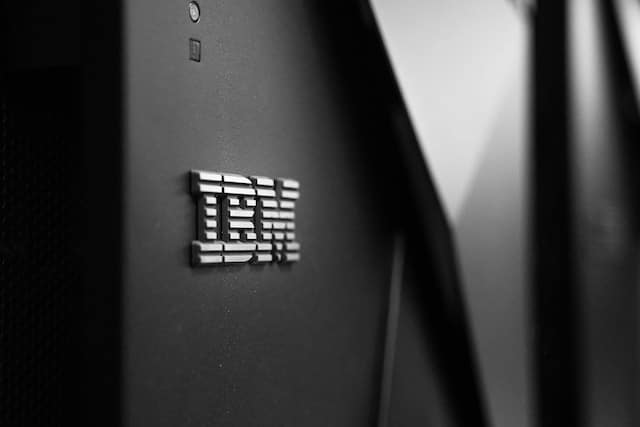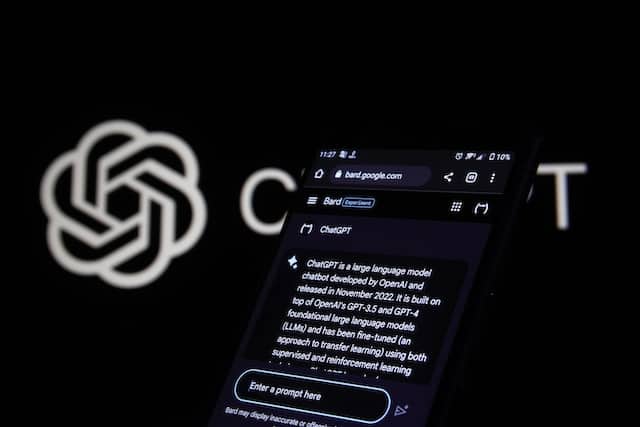IBM Explores the Intersection of Blockchain and AI

In a recent article, technology giant IBM provided an insightful overview of the applications and benefits of combining blockchain and artificial intelligence (AI). IBM, renowned for its expertise in cutting-edge technologies, highlighted the key characteristics of blockchain and AI and how their integration can bring value to various industries.
- 1 Blockchain: A Shared and Immutable Ledger
- 2 Artificial Intelligence: Leveraging Computers for Intelligent Insights
- 3 Authenticity: Building Trust in Data Integrity
- 4 Augmentation: Enriching Blockchain-based Business Networks
- 5 Automation: Streamlining Business Processes
- 6 Use Cases for Blockchain and AI
Blockchain, as defined by IBM, is an immutable and shared ledger that enables the secure and transparent exchange of encrypted data among multiple participants in real time. This technology has the ability to track various aspects such as orders, payments, accounts, and production, fostering trust and efficiency among permissioned members. By offering a single view of truth, blockchain networks enable businesses to gain confidence in their transactions and unlock new opportunities.
Artificial Intelligence: Leveraging Computers for Intelligent Insights
On the other hand, AI leverages computational power and data to replicate human-like problem-solving and decision-making abilities. It encompasses machine learning and deep learning, which utilize AI algorithms trained on data to make predictions and continuously improve their performance. The advantages of AI include automating repetitive tasks, enhancing decision-making processes, and improving customer experiences.

Authenticity: Building Trust in Data Integrity
The combined utilization of blockchain and AI brings forth several synergistic benefits. One such advantage is the enhancement of authenticity. By leveraging the digital record offered by blockchain, AI systems can effectively demonstrate the provenance of the data they employ, addressing the challenge of explainable AI. This fosters trust in data integrity and the recommendations made by AI. Furthermore, using blockchain to store and distribute AI models introduces an audit trail, thereby bolstering data security.
Augmentation: Enriching Blockchain-based Business Networks
Another area where blockchain and AI intersect is augmentation. AI’s ability to swiftly analyze and correlate vast amounts of data can greatly enrich blockchain-based business networks. Blockchain facilitates access to extensive data from within and outside organizations, allowing AI to provide actionable insights, manage data usage and sharing, and establish a transparent and reliable data economy.
Automation: Streamlining Business Processes
Automation is yet another domain that benefits from the combination of AI, automation, and blockchain. These technologies collectively enable seamless, efficient business processes that involve multiple parties. For instance, smart contracts embedded with AI models can automate various operations, such as product recalls, transaction execution, dispute resolution, and selection of optimal shipping methods based on predefined criteria. This integration reduces friction, adds speed, and increases overall efficiency.

Use Cases for Blockchain and AI
The potential use cases for the amalgamation of blockchain and AI span across industries. In the healthcare sector, AI can contribute to treatment insights, patient data analysis, and pattern recognition, while blockchain ensures secure sharing of electronic health records, allowing organizations to collaborate for improved care while safeguarding patient privacy.
Life Sciences: Increasing Visibility and Success Rates
In the life sciences realm, combining blockchain and AI offers increased visibility and traceability in the drug supply chain, as well as improved success rates for clinical trials. The decentralized nature of blockchain, when coupled with advanced data analysis, enables enhanced data integrity, transparency, patient tracking, consent management, and automation of trial participation and data collection.
Financial Services: Enabling Trust and Efficiency
Financial services are also experiencing a transformative impact from blockchain and AI integration. By fostering trust, removing transactional frictions, and accelerating the speed of operations, these technologies streamline processes such as loan applications. Applicants can grant consent for accessing personal records stored on the blockchain, instilling trust in the data and enabling automated evaluation, ultimately leading to faster closings and improved customer satisfaction.
Supply Chain: Digitization, Trust, and Automation
Supply chain management is another sector that stands to benefit significantly from the convergence of AI and blockchain. By digitizing traditionally paper-based processes and ensuring trustworthy data sharing, AI and blockchain bring intelligence and automation to supply chains. For instance, manufacturers can track carbon emissions at a granular level, enabling more accurate and informed decarbonization efforts.
The Future of Blockchain and AI
As IBM’s analysis demonstrates, the integration of blockchain and AI offers a wide range of opportunities for multiple industries. These technologies can drive transparency, efficiency, trust, and automation, revolutionizing how businesses operate and collaborate in the digital era. With ongoing advancements, further exploration of the synergies between blockchain and AI is expected, paving the way for innovative solutions and transformative outcomes.







